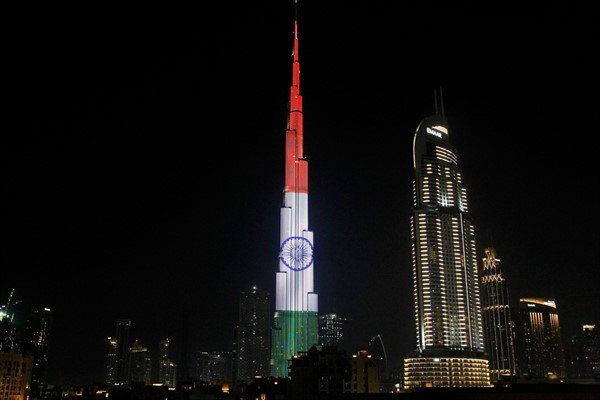One of India’s foreign policy success stories under Prime Minister Narendra Modi is the country’s deepening relations with Gulf Arab states. Building on previous Indian governments’ engagement with members of the Gulf Cooperation Council—namely Saudi Arabia, Oman, Bahrain, Kuwait, Qatar and the United Arab Emirates—Modi has zeroed in on common economic and security interests to cement strong ties with GCC countries during his time in office.
The coronavirus pandemic has been the biggest disruption in years to these partnerships. For starters, prominent voices in the Gulf have spoken out against rising Islamophobia in India and among some members of the Indian diaspora. After a cluster of COVID-19 cases was traced to a gathering of Muslim missionaries in New Delhi in mid-March, Muslims around the country were subjected to a wave of verbal and physical abuse. Even some officials from the ruling Hindu nationalist Bharatiya Janata Party, or BJP, have accused Muslims of waging “corona jihad” by deliberately spreading the virus. The incidents come on the heels of a deadly wave of communal violence earlier this year in New Delhi, in which Muslim communities and businesses were disproportionately targeted.
The rise in anti-Muslim sentiment led the government of Kuwait to issue a statement in late April urging the Organization of Islamic Cooperation, which includes all six GCC countries, to “take necessary and urgent measures” to “preserve the rights of Muslims” in India. And a member of the UAE’s royal family, Princess Hend al-Qassimi, spoke out on Twitter against Indian expatriates spreading anti-Muslim sentiments online; she wrote that anyone expressing racist or discriminatory views could be punished under the country’s strict laws against hate speech. In fact, a number of Indians in the UAE have had their employment terminated for posting divisive comments on social media.

